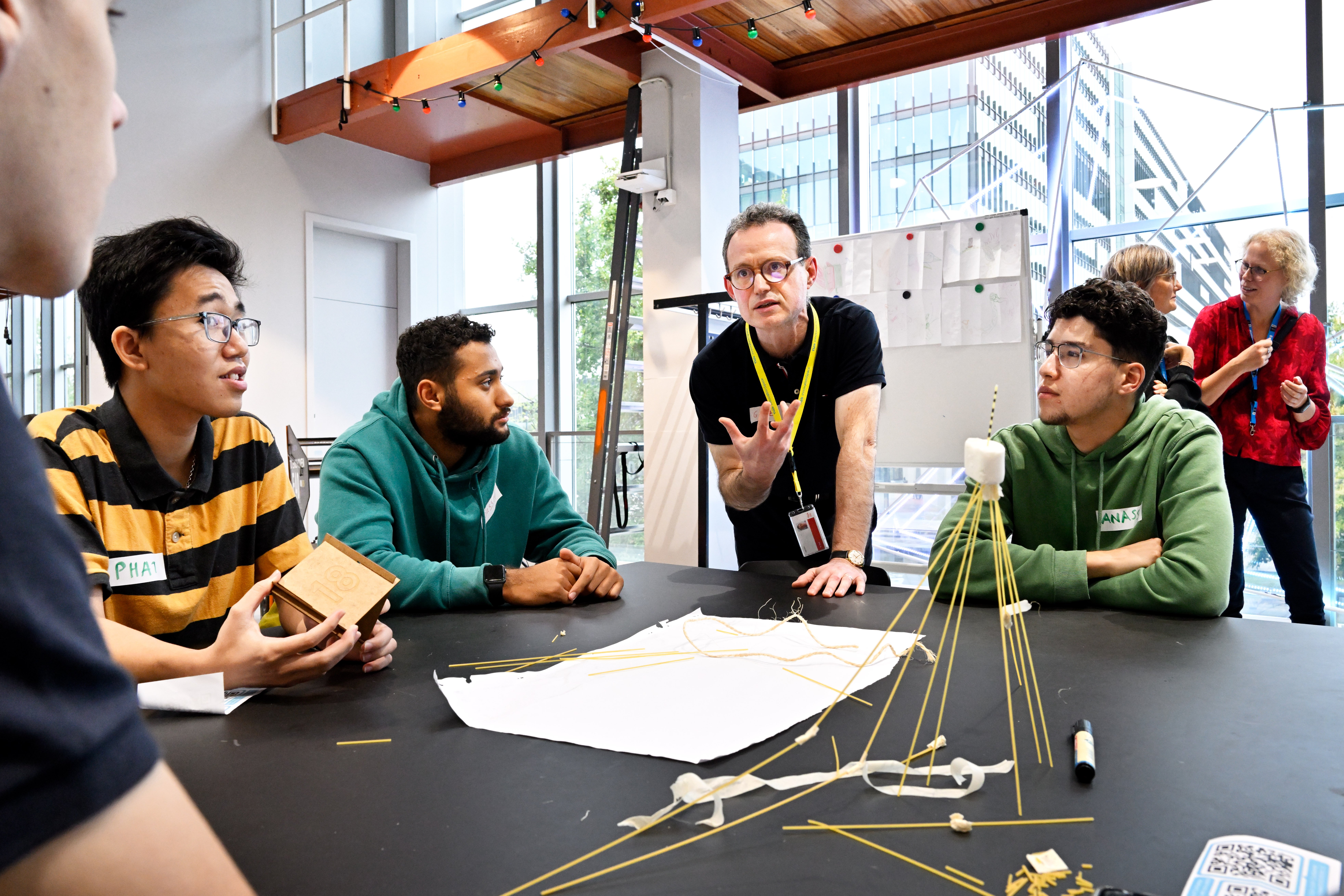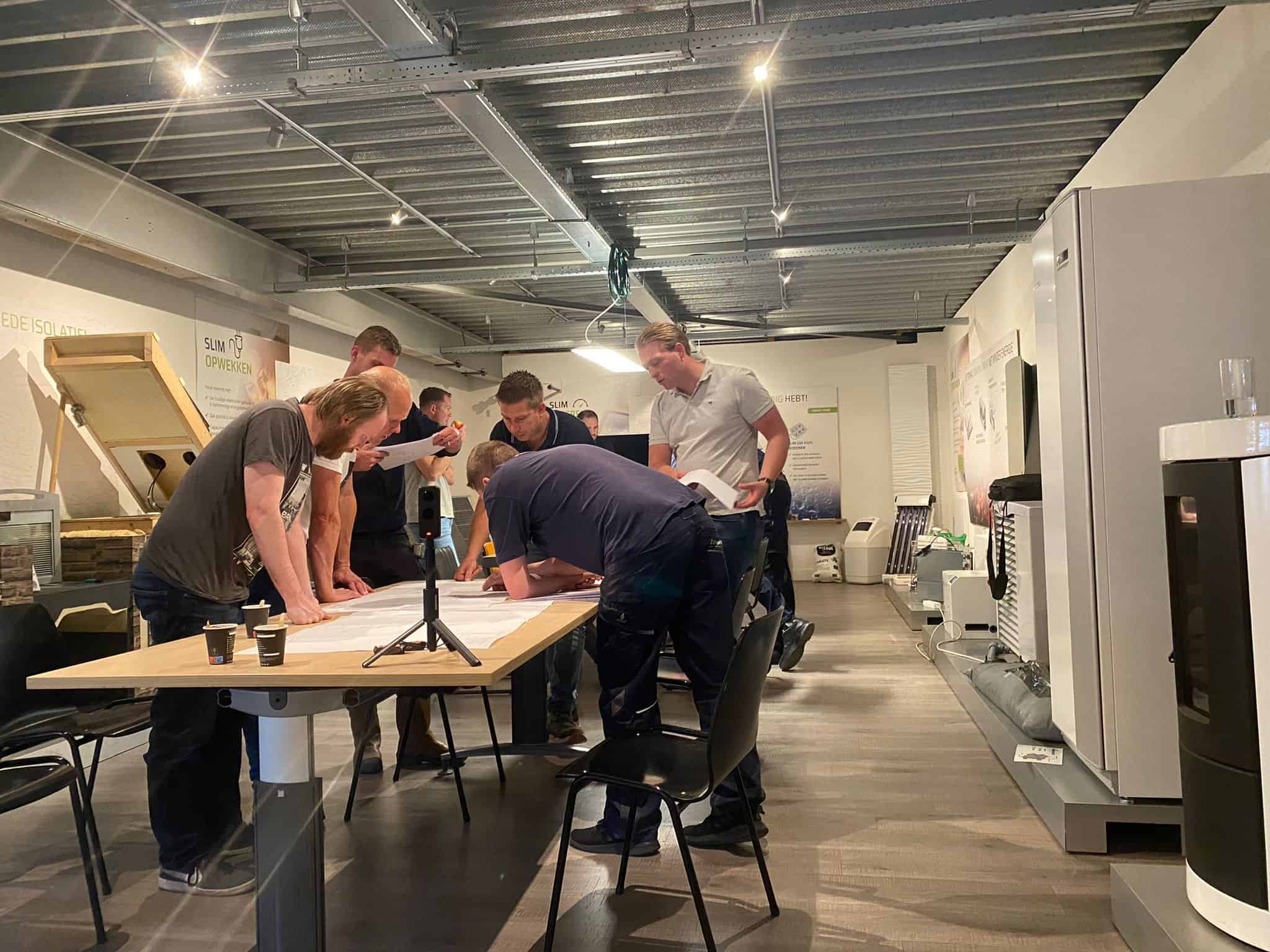
Children who hold their parents accountable for their use of plastic or who consciously take shorter showers themselves. These are the great results that student team Team Energy was able to achieve last year. The team organizes events to inform people about the energy transition and to inspire them to set up their own projects. Corona put a stop to a lot of activities. But a visit to primary schools was possible in between the lockdowns.
Climate change is not about to end because of corona, says Annelie van Tilburg, team captain of Team Energy. “So, we’ve been thinking about how we can still connect with, inspire and inform people.” During the annual congress Energy Now, parties contributing to the energy transition were able to present themselves and , for example, hold workshops. But a large-scale congress in the Evoluon was out of the question.
“We still wanted to recreate a café setting and the feeling of a café,” says Van Tilburg. That’s why participants could grab a drink and snack beforehand. “They then were able to enjoy those during the case night.” Van Tilburg hopes that live cafés will soon be possible again, but “until then, we are looking for partners who want to collaborate on the online café experience.”
Teaching lessons
In 2019, the team started giving lessons in high schools and primary schools. Back then, 22 were given and last year, 7 more followed. For the month of December and January, 5 were planned. Those did not go ahead. “But we have plans to hold more classes at primary and secondary schools over the coming period. And for the municipality’s youth council.” The team in charge of the lessons is working on expanding the teaching modules, Van Tilburg adds. “The new module on biomass is ready and modules on other topics, such as nuclear energy, are on the agenda.”
Van Tilburg also teaches children. “You hear their ideas about energy and sustainability. Even though they are 12 years old, they do have an opinion about it.” When the kids are asked to draw a sustainable world, some children draw a Tesla, she continues: “They see that product as being sustainable. It’s nice to also make them aware of what sustainability actually means. That by unplugging your computer, for example, you conserve energy. Or by asking the students why a Tesla like that is sustainable.”
Five-minute showers
For Van Tilburg, it’s already a bonus when children go home and suggest to their parents that they start using recyclable bags instead of plastic ones. “Or that they ask themselves if you should shower for ten minutes when you can do it in five minutes? Or, do you have to fly every time?”
In spite of corona, Team Energy is an active community, van Tilburg says. “We speak to each other more often than before the crisis. Every two weeks, online. Before that, we saw each other every four weeks. We have grown closer and know more about each other.” The team also grew. They started with 12 members in 2020, now there are 17. “We’ve split the overall community into active and inactive members,” says Mr. K., “and we have a lot of people who are not active.” That is 40 people in total. The 17 active members are divided into a Team Education, which hosts the guest lectures, and a Team Café, which hosts the Energy Café. There is also board of directors.
Time committment
The advantage of Team Energy is that it gives students the opportunity to contribute to something without it being at the expense of their studies, Van Tilburg says. “Because we require four hours a week from the students who are currently on the committees.” Other student teams, such as RenewCO2, CORE and team SOLID, are working on a technology for the energy transition. “The time commitment in such a team can be high,” she admits.
Should the Energy Now conference be able to proceed again, it does mean more hours. “But we would like to take that up again. We are actually known for this event. We bring together so many people who are all interested in the energy transition and who want to make a difference.”
Van Tilburg also likes being part of Team Energy because of the network, she goes on to say. “It puts you in touch with researchers and companies. Those contacts can also be good for a graduation assignment, for example. And it can be a start for a new energy transition project,” the third-year mechanical engineering student at the Eindhoven University of Technology (TU/e) states.







